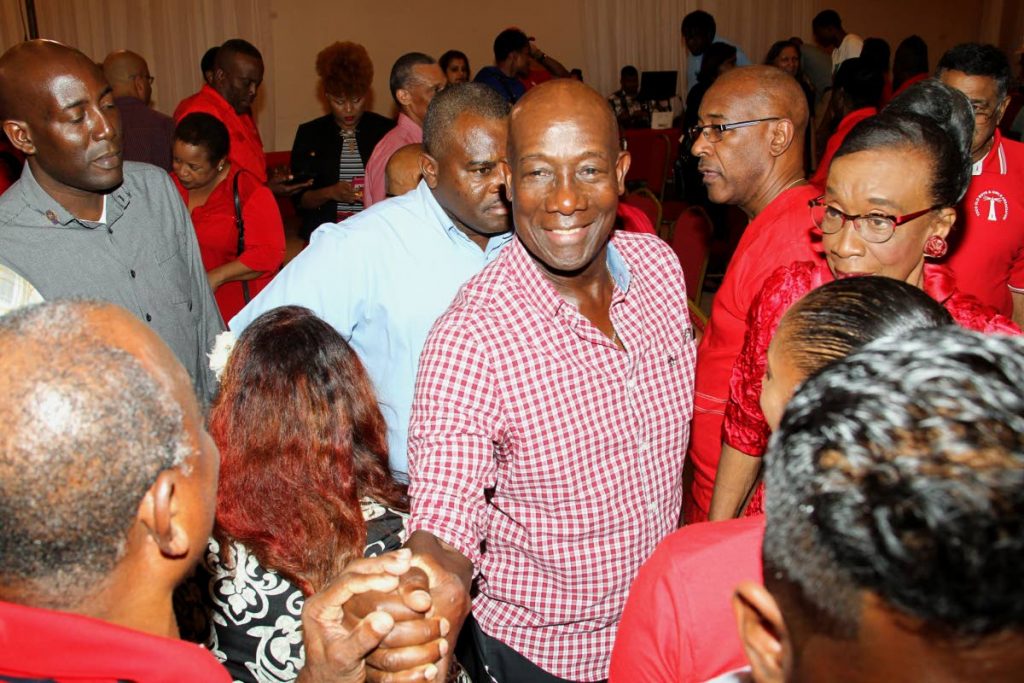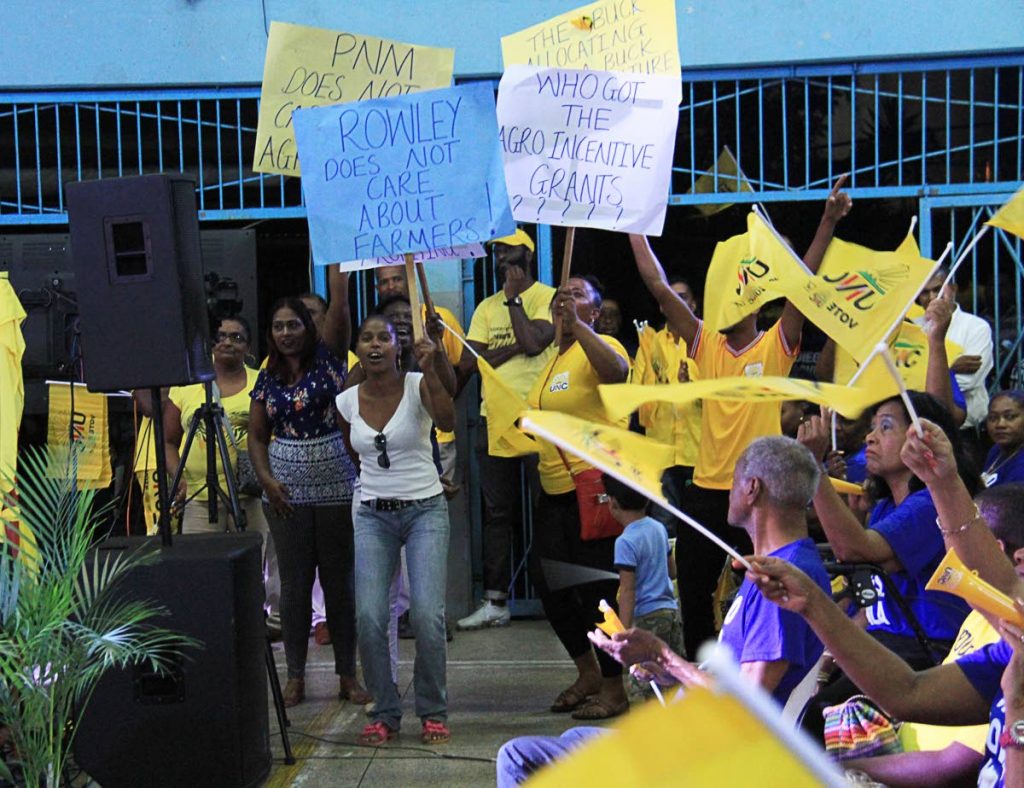Moody's: Elections may pressure economy

INCREASED expenditure related to upcoming elections could have an impact on efforts to reduce this country's fiscal deficit.
The mid-year review of the 2018/2019 budget last month suggested that TT's fiscal deficit could be reduced but spending pressures on the economy could increase ahead of local government and general elections which are constitutionally due this year and next year. Moody's Investor Service made these observations in an issuer comment dated May 31.
Moody's said the review by the Finance Ministry, on May 13, showed a smaller than expected fiscal deficit through the first six months of fiscal 2019, up to March. This will be driven largely by lower spending on goods and services and lower capital expenditure. Moody's said for this year, Government expects a wider fiscal deficit of $4.6 billion compared to $4.1 billion in its original budget.
This reflects upward revisions to spending and downward revisions to revenue on the back of lower oil price assumptions.
But Moody's said, "Overall, we still expect the deficit to narrow to about $4 billion (2.5 per cent of GDP) in fiscal 2019 from $6.3 billion (four per cent of GDP) in fiscal 2018, as a result of under-execution on expenditure targets." Moody's also said this should help to stabilise government debt at its current level of around 60 per cent of GDP.
Through the first six months of fiscal 2019, the government reported that revenue outperformed its own projections, increasing by 16 per cent over the first half of the previous fiscal year. This was largely due to higher than expected capital revenue, mostly from the sale of assets. Apart from this, current revenue or revenue excluding capital revenue was broadly in line with government expectations.
Tax and non-tax revenue from energy companies were lower than Government projected. But this was offset by higher equity profits paid by the Central Bank. VAT revenue was below government estimates for the first half of fiscal 2019, and down more than 20 per cent over the same period one year ago.
Regarding expenditure, Moody's said total spending increased by seven per cent in the first half of fiscal 2019 compared to the same period a year earlier. But it was ten per cent below government's projections. Moody's said this under execution reflects lower spending on goods and services and capital expenditures.
Government's revisions to spending and revenue projections for fiscal 2019 are relatively small. Lower oil revenue is expected due to changes in government assumptions for oil prices and higher spending. More than one third of this is associated with exit costs related to Petrotrin.
Government revised down its oil price assumption to an average of US$60 from US$65 per barrel in the 2019 budget. The gas price assumption was raised from $2.75 to $3 per mmbtu. Government announced a three-month tax amnesty for all taxpayers beginning the middle of this month. The Finance Ministry provided no estimates of the revenue it expects to collect from this programme. Moody's also said spending cuts did not offset government revenue shortfalls after the 2014 oil price shock.

Government was able to reduce nominal spending between 2015 and 2018, with total expenditure down to 22 per cent since 2014. The reduction included cuts to spending on goods and services as well as politically sensitive items, such as transfers and subsidies. Moody's said these are now 25 per cent lower in nominal terms compared to fiscal 2014.
Outside of another fall in oil and gas prices, which had a significant impact on the government's revenue intake, Moody's said, "Spending is now more properly aligned with revenue." Moody's expected that government debt will remain "broadly stable."
Based on tax and non-tax revenue collection through the first half of the fiscal year, the government's revenue targets for the full year appear to be optimistic. But Moody's said the main downside to expectations of narrowing the fiscal deficits this year and in 2020 "is an increase in election spending and delays to tax measures. Government plays an important role in maintaining employment levels and domestic demand, through its social programmes and transfers to state enterprises."
With a relatively tepid recovery in growth, Moody's said, "Our forecasts already assume more significant fiscal reforms will only be considered after the elections." Moody's believed that should the government execute its spending plans for fiscal 2019 and revenue comes in line "with our projections, the fiscal deficit would widen to 3.8 per cent of GDP."
Beyond these risks, Moody's said political gridlock would prevent or delay the passage of material structural reforms. Whichever party wins the general election, Moody's said that party would have a slight majority in Parliament, far below the three-fifths majority required for many tax and other fiscal measures. This reduces prospects for significant diversification away from oil and gas.
Over the medium term, improvements in the fiscal balance will depend critically on oil and gas production as well as prices and the successful implementation of structural reforms. Moody's said the Finance Ministry expects oil production will stabilise this year around 60,000 barrels per day (bpd) before increasing to 80,000 bpd by 2023.
Moody's said Heritage Petroleum is being seen as a source for part of this increased production, as the company increases its focus on exploration and production. Despite execution risk remaining high, Moody's believes that Heritage is likely to achieve its production targets.
The establishment of the Revenue Authority to strengthen tax administration, boosting tax buoyancy and, improvements in the public procurement process, Moody's said, could "lead to significant savings on the expenditure side of the ledger."


Comments
"Moody’s: Elections may pressure economy"